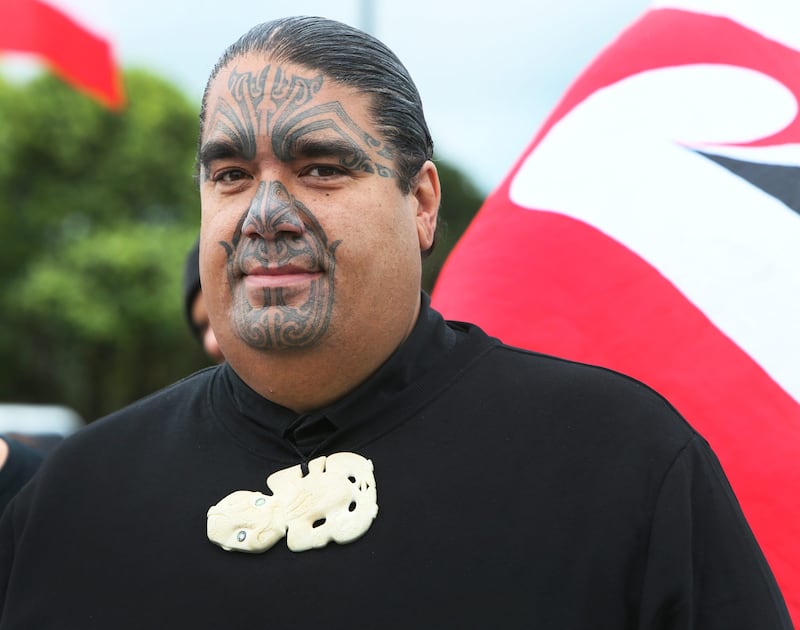The Government’s decision to press on with changes to the Marine and Coastal Area (Takutai Moana) Act, despite a Supreme Court ruling last year that appeared to weaken the case for reform, has been met with strong opposition from Māori legal experts and iwi leaders.
Treaty Negotiations Minister Paul Goldsmith confirmed Cabinet has agreed to progress a bill already before Parliament to amend section 58 of the Act.
He said the change would “restore Parliament’s original test” for Customary Marine Title (CMT), ensuring a high threshold for recognition, whether applications are made through the courts or directly with the Crown.
“Customary Marine Title gives the holder valuable rights, including refusing resource consents in the area, such as for renewals of some private assets like wharves, or aquaculture expansion,” Goldsmith said.
“All New Zealanders have an interest in the coastal waters of our country, so Parliament deliberately set a high test in 2011 before Customary Marine Title could be granted.”
Under the proposal, the tougher test would apply retrospectively to any court decisions made since 25 July 2024, as well as all undetermined applications.
Hunga Rōia Māori co-president and lawyer Natalie Coates described the move as an appalling decision, in line with other decisions they’re making around Māori rights, which is effectively to minimise them.

“Māori have become politically expendable to this government, and their justifications for this decision are misleading. They say they want to ‘align it with the original intent of Parliament in 2011’ but the actual architects of the bill, including Minister Chris Finlayson from the then-National Government, have said what’s happening now does not align with the original intent,” Coates said.
“If they were being honest about what they were doing, a more accurate articulation of it is that they’re using the law to extinguish Māori rights in effect, because they do not want Māori to have a say when there’s economic development in the ocean.”
More than 200 applications for customary marine title are making their way through the courts.
Under the amendment bill, any court decisions issued after 25 July 2024 will need to be reconsidered. That could impact about seven cases, involving various iwi.
Coates warned that it would create a legal mess for everyone, not just Māori.
“This is retrospective lawmaking, going backwards and saying: even though you proved your rights, we’re now taking them away. It’s constitutionally unsound and shouldn’t be done.”
She also pointed to the inequity the reforms would create between iwi.
“Some claimants may have been awarded customary marine title, and their neighbours through no fault of their own, won’t, because the test has been set higher. That’s a patchwork system across the motu; it is unjust and inequitable.”
Ngātiwai’s customary marine title application under the Marine and Coastal Area (Takutai Moana) Act is still before the courts.
In parallel, Ngātiwai has been a key participant in the Waitangi Tribunal’s urgent inquiry into the Government’s proposed amendments to the Act.
During Stage Two hearings in May 2025, the iwi argued that the changes, particularly raising the legal threshold for recognition and applying it retrospectively, would undermine their ongoing claim, breach Te Tiriti o Waitangi, and strip away rights hard-fought for through years of legal work.
Ngātiwai chair Aperahama Edwards said the Crown’s approach to ignore the Supreme Court and the Waitangi Tribunal’s initial report is absolutely immoral and tramples on the rights of Māori and Te Tiriti o Waitangi.
“Ki ahau nei, he pōrangi, he pōhauhau ēnei mahi māminga a te kāwanatanga. He moumou pūtea, e tōia ana tātou ki tētahi wāhi mōrearea. E wero atu ana ahau ki te minita, ki a Goldsmith, i te mea, kua whakapuaki kē mātou i ēnei kōrero ki a ia.

“Kua kōrero hoki te Kōti Teitei o Aotearoa, ā, auare ake - koia tonu te ara e whai nei ia. Kei te takahi ia i Te Tiriti o Waitangi, e tūkino ana i te mana o te iwi Māori me te mana tuku iho.”
He is labelling the move as unbecoming, unprincipled, and undemocratic.
Edwards vows they will continue to challenge the decision with whatever means necessary.
“We will not accept it. And we will rise to meet this challenge with whatever means is required. And there will be other action taken. But we will take action. Direct action.
“We are already pursuing a legal challenge, and there will be other forms, whether that’s hīkoi or other collective action. Especially as we head towards summer, those of us that live in highly favoured coastal communities we have the means to give voice to our concerns.”
Edwards said mining permits for sand extraction and other seabed activities already threaten taonga and warned that the reforms would further endanger the natural environment.
“The preservation and protection of the natural world and our resources for future generations should be at the forefront… To see them compromised for financial gain in the present is shameful,” Edwards said.
Natalie Coates asserts the same sentiment that once again, under the government’s agenda, Māori and others must act and respond to what she is describing as a travesty.
“This is the minimisation, extinguishment of Māori rights in a way that’s absolutely appalling. Every iwi, hapū, whānau that has a claim in the takutai moana will be impacted by this. and New Zealanders more broadly.
“If we are a country that respects rights, if we respect the rule of law, if we respect constitutional integrity, if we respect Te Tiriti o Waitangi — this is something to fight for.”



